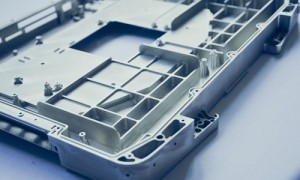Is it cheaper to machine steel or aluminum?
Views: 962 Update date: Dec 04,2023
The cost of machining steel or aluminum can depend on various factors, and it's not a straightforward answer. Several factors influence the overall cost of machining, including material costs, tooling costs, machine time, and labor.
In general, aluminum is often considered less expensive than steel in terms of material costs. Aluminum is lighter, less dense, and more abundant, making it generally more cost-effective. However, other factors come into play:
Tooling Costs: Machining harder materials like steel might require more durable and expensive cutting tools. So, tooling costs can be higher for machining steel.
Machining Time: The time it takes to machine a part depends on the material's hardness and the complexity of the part. Steel is harder than aluminum, so machining steel may take longer, increasing labor costs and machine time.
Specific Application Requirements: The specific requirements of your application may also impact the choice of material. For instance, steel might be chosen for its strength and durability in applications where those characteristics are crucial.
In summary, while aluminum is generally less expensive than steel in terms of material costs, the overall cost of machining depends on various factors. It's essential to consider the specific requirements of your project and weigh material costs against other factors like tooling, machining time, and energy consumption to determine the most cost-effective option for your application.
Prev: What is the best grade of aluminum for machining?
Next: Is machined aluminum stronger than cast aluminum?
In general, aluminum is often considered less expensive than steel in terms of material costs. Aluminum is lighter, less dense, and more abundant, making it generally more cost-effective. However, other factors come into play:
Tooling Costs: Machining harder materials like steel might require more durable and expensive cutting tools. So, tooling costs can be higher for machining steel.
Machining Time: The time it takes to machine a part depends on the material's hardness and the complexity of the part. Steel is harder than aluminum, so machining steel may take longer, increasing labor costs and machine time.
Energy Costs: Machining harder materials may require more energy, affecting operational costs.
Specific Application Requirements: The specific requirements of your application may also impact the choice of material. For instance, steel might be chosen for its strength and durability in applications where those characteristics are crucial.
In summary, while aluminum is generally less expensive than steel in terms of material costs, the overall cost of machining depends on various factors. It's essential to consider the specific requirements of your project and weigh material costs against other factors like tooling, machining time, and energy consumption to determine the most cost-effective option for your application.


